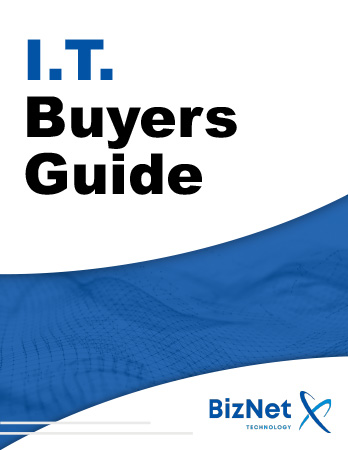Hacked by ‘123456’: What a McDonald’s Mess Teaches Us About AI in Hiring
Imagine applying for a job, only to find out your personal information—name, phone number, email, and address—was exposed to hackers because the company’s high-tech hiring system was protected by the password "123456." This isn't a hypothetical scenario; it's exactly what happened with the AI-powered hiring platform used by McDonald's.
This single, shocking incident pulls back the curtain on the world of AI in hiring. While companies are rushing to adopt artificial intelligence to make hiring faster and more efficient, this story serves as a powerful cautionary tale. It highlights the very real risks that come with handing over such a critical human process to algorithms without the right safeguards.
The McDonald's case is a perfect starting point to explore the bigger picture: Is AI helping or hurting the way we find jobs? Let's dive into the details of what went wrong and then analyze the good, the bad, and the ugly of AI in the hiring game.

A Case Study in What Can Go Wrong: The McHire Meltdown
To handle its massive volume of applications, McDonald's uses an AI platform called McHire, which is powered by a chatbot named "Olivia." This bot, created by the tech company Paradox.ai, is designed to screen applicants, ask questions, and even schedule interviews. However, even before the security breach, applicants were complaining on forums like Reddit that the chatbot was frustrating, often getting stuck in loops and misunderstanding simple questions.
The real disaster was discovered by two security researchers who, intrigued by the "dystopian" hiring bot, decided to investigate. They found a login page for Paradox.ai employees and, on a whim, tried the username and password "123456." It worked.
In just 30 minutes, they gained access to a system that held the personal data of potentially 64 million job applicants. While the flaw was fixed quickly after being reported, the incident revealed how a simple mistake could expose millions of people's sensitive information. This story is a stark reminder that as companies embrace AI, they must also be incredibly careful about security and oversight.
The Bigger Picture: Analyzing AI in the Hiring Process
The McDonald's incident highlights the risks, but it doesn't tell the whole story. Companies are turning to AI for a reason. Let's look at the broader pros and cons.
The Good Stuff: Why Companies Are Using AI Anyway
Despite the potential pitfalls, AI offers some powerful benefits that are hard for businesses to ignore.
- Speeding Things Up: The biggest advantage is speed. AI can scan thousands of resumes in seconds and automate the tedious back-and-forth of scheduling interviews. McDonald's itself reported cutting its time-to-hire by 60% with its McHire platform. For job seekers, this means less time spent waiting in the dark.
- A Fairer Shot for Everyone: Humans have unconscious biases that can affect hiring decisions. When designed correctly, AI can level the playing field by focusing purely on a candidate's skills and qualifications, ignoring factors like name, gender, or age.
- Answering Your Questions 24/7: AI-powered chatbots can be a huge help to candidates. They are available around the clock to answer questions about a job, provide updates on an application, and guide people through the process, making it feel more responsive.
The Not-So-Good Side: The Common Downsides for Job Seekers
For every story of efficiency, there's another of frustration. For many candidates, interacting with hiring AI is far from a positive experience.
- Losing the Human Touch: Hiring is a deeply human process. Talking to a chatbot or a pre-recorded video interview can feel cold, robotic, and impersonal. It's hard to get a feel for a company's culture or build a real connection when you're only interacting with an algorithm.
- The Frustration of Algorithmic Rejection: Have you ever been rejected for a job you felt perfectly qualified for? An AI screener, or Applicant Tracking System (ATS), might be the reason. These systems filter out up to 75% of resumes before a person ever sees them, often because the resume didn't contain the exact right keywords. This leaves qualified people feeling confused and unfairly dismissed.
- Can a Robot Really Judge Your Personality? One of the most controversial AI tools analyzes video interviews, looking at everything from your facial expressions and tone of voice to your body language. For many, this feels invasive and unsettling. It’s hard to be yourself when you know a machine is scrutinizing your every move.
The Big Problem with Bias
This is the biggest catch with AI in hiring: an algorithm is only as unbiased as the data it's trained on. If an AI is fed a decade's worth of a company's hiring data, and that data reflects past human biases, the AI will learn and even amplify those same biases. The most famous example of this was an experimental hiring tool at Amazon that taught itself to penalize resumes containing the word "women's" because it had learned from historical data that male candidates were preferred.
Finding the Sweet Spot: A Human-AI Partnership
So, is AI in hiring good or bad? The truth is, it's a tool. And like any tool, its impact depends entirely on how it's used.
The future of hiring isn't about choosing between robots and humans. It's about finding the right balance and creating a partnership. AI is at its best when it handles the repetitive, time-consuming tasks—like sorting resumes and scheduling interviews. This frees up human recruiters to do what they do best: build relationships, understand a candidate's unique story, and determine if they are a good fit for the team's culture.
The McDonald's data breach is a powerful lesson. It shows that while AI can bring incredible efficiency, it also brings incredible responsibility. For hiring to be truly effective, it needs to be smart, secure, and, above all, human.




